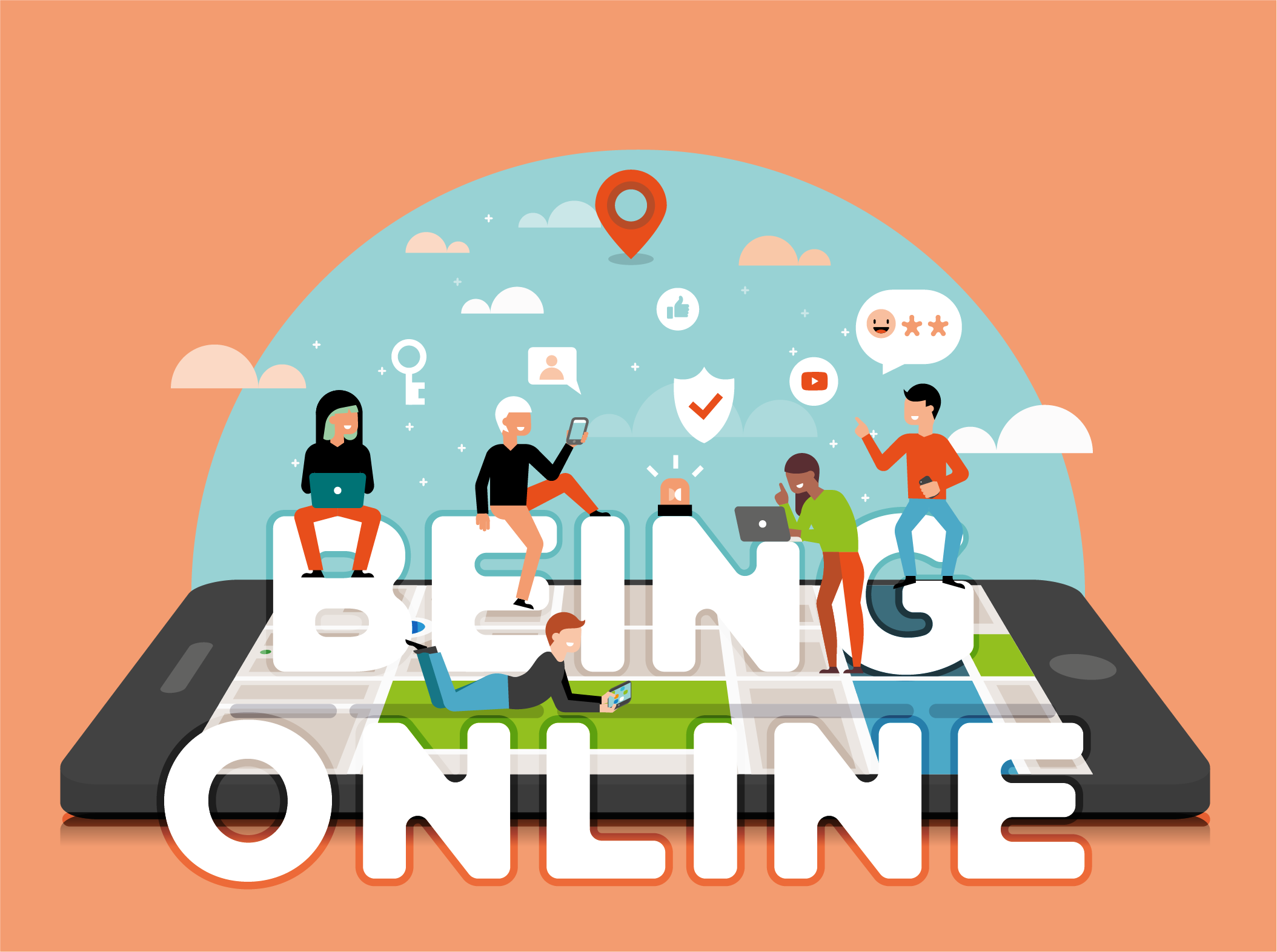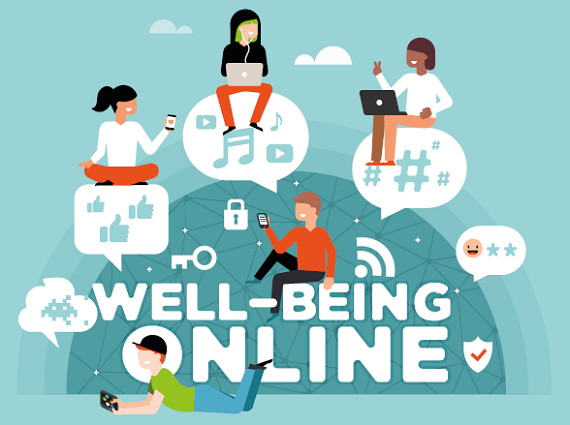DCE and the private sector
Education institutions increasingly rely on and need to work closely with the private sector to support the digital learning environment. Business enterprises provide cutting-edge learning technologies and a host of associated digital services and learning resources.
Aware of the changes taking place in education, the Council of Europe developed its Guidelines to Support Equitable Partnerships of Education Institutions and the Private Sector as part of its DCE Programme. Intended to provide a framework for building successful partnerships of public and private sectors within education for the purposes of embedding digital citizenship and putting it at the heart of collaboration.
As part of a series of initiatives to support the adoption of the Guidelines, the Council of Europe has created a Statement of Commitment which participants can sign as a public demonstration of their support for the Guidelines and the principles of digital citizenship education. Entities who have signed the Statement will also be invited to regular stakeholder exchange events.
Through education and private sector partnerships, the private sector can assume its corporate social responsibility and seek to raise awareness and support for digital citizenship.
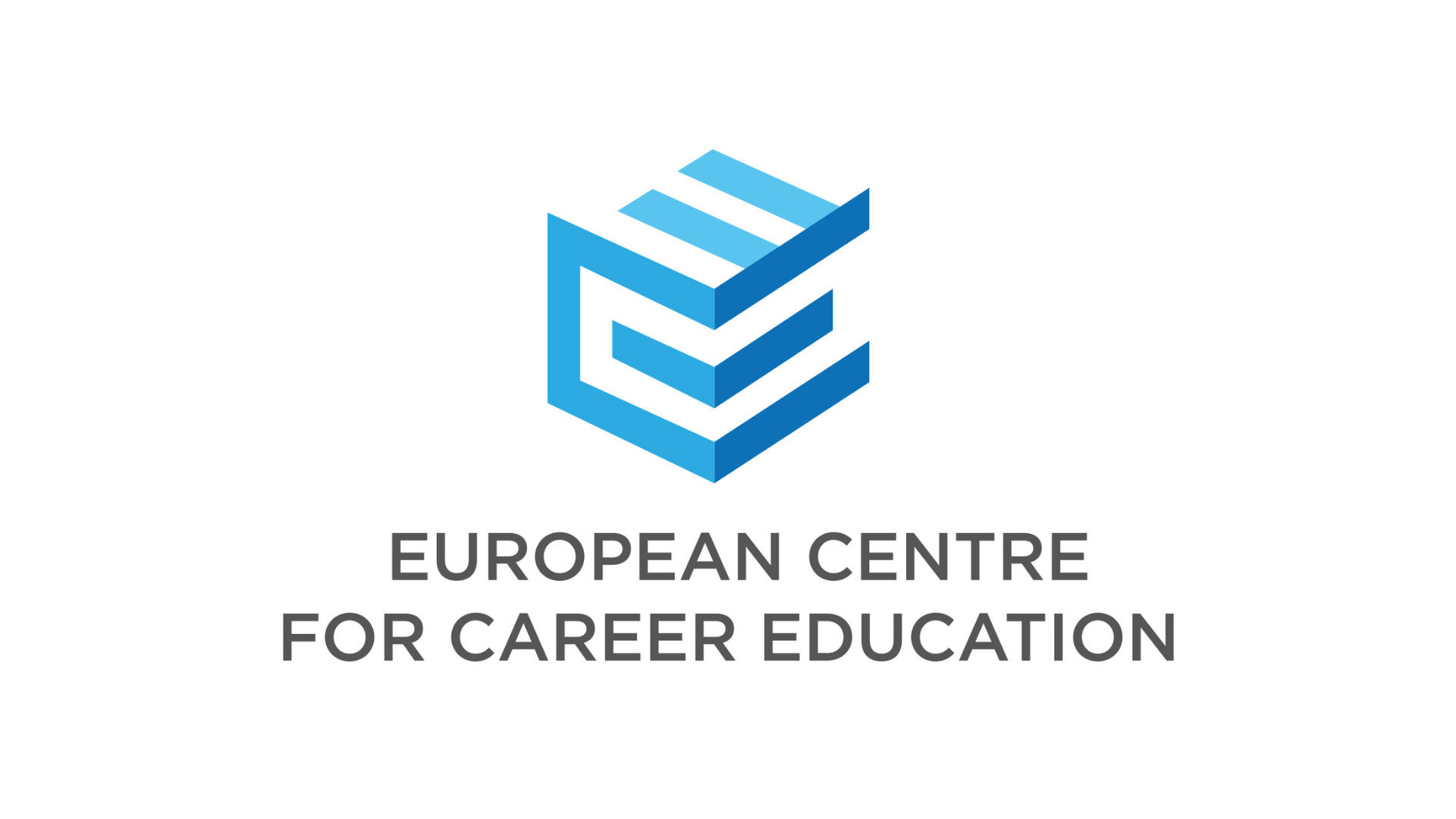
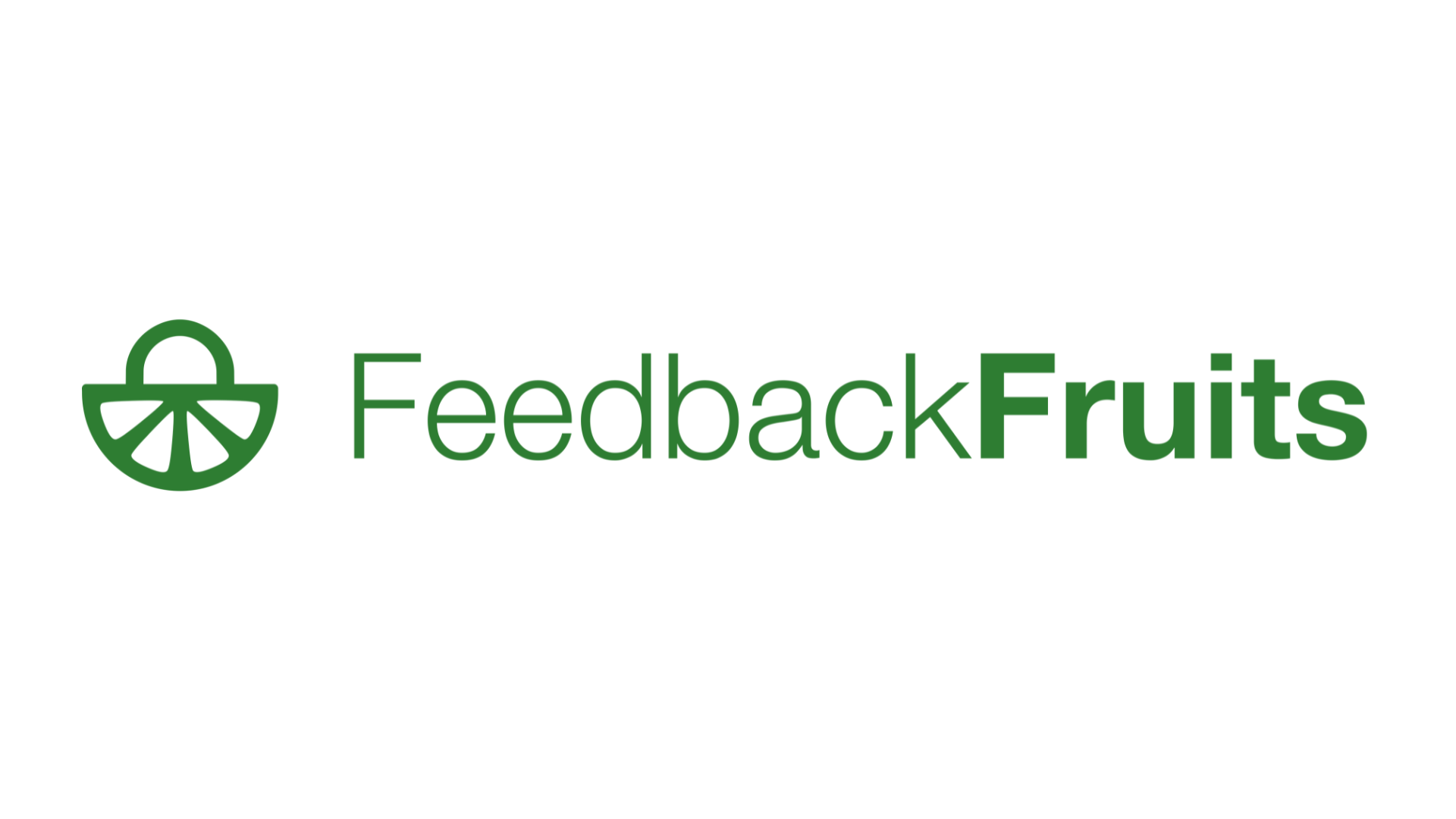
FeedbackFruits is also one of the founding members of the Trustframework.eu. An initiative to Fostering Trustworthy Public/Private Partnerships in Education.
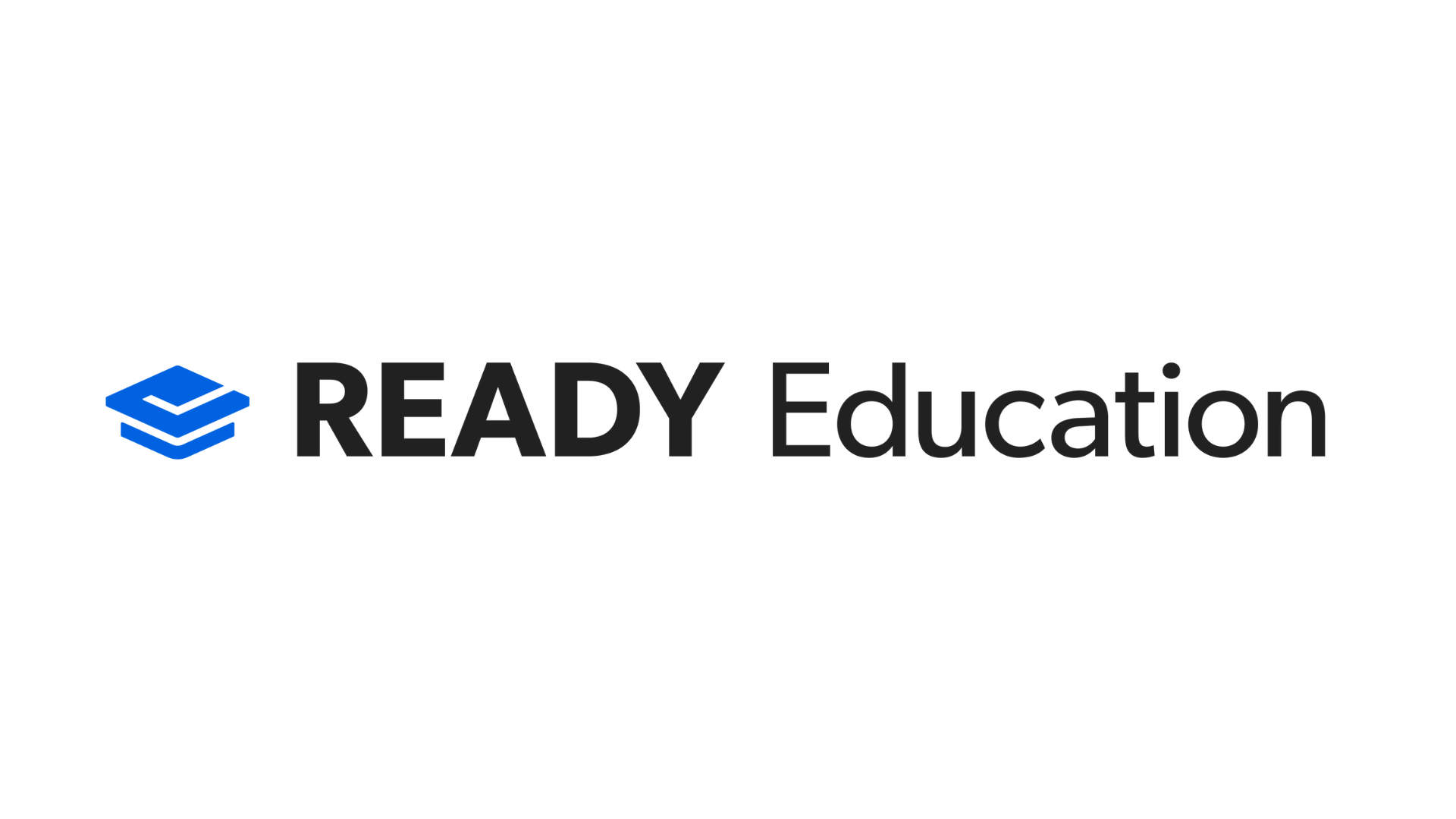

To demonstrate the breadth of digital citizenship, the Council of Europe’s DCE project has put forward 10 digital domains to capture the full range of interactions in which digital technologies play a part. These have their origin in the Council of Europe’s Competences for Democratic Culture, which provide an overview of the competences required for effective participation in a culture of democracy.
The 10 digital domains provide the framework for presenting the Guidelines to support equitable partnerships of education institutions and the private sector.
Access and inclusion
The private sector can support access and inclusion by:
- providing accessible, easy-to-use and reliable digital tools and infrastructure;
- supporting inclusion and equal opportunities for all learners through affordable access and connectivity;
- ensuring that their platforms, devices and resources conform to international accessibility standards such as Web Content Accessibility Guidelines (WCAG) 2.0 and 2.1;
- implementing design principles, for example “universal design”, to support access for all, including learners with special needs, and avoiding segregating or stigmatising any user;
- ensuring where possible that the conditions of access to the digital environment are transparent and free of hidden forms of subsidy or commercial content.
Education institutions can support access and inclusion by:
- putting in place policies to make sure that all learners in a school have safe and secure access to the online world;
- ensuring that connectivity and access to digital resources are not tied to advertising or direct marketing to children;
- harnessing open educational resources that are available in the public domain under an open licence, enabling no-cost access, use, adaptation and redistribution;
- making “open solutions”, including OER as well as free and open source software (FOSS), open access (OA) and open data (OD) part of their overall digital strategy;
- using assistive technologies to improve the functional capabilities of persons with disabilities. These can include devices such as alternate keyboards and pointing devices, voice recognition software, monitor magnification software and text-to-speech communication aids;
- developing policies to support “bring your own device” (BYOD) as another way of extending access and supporting seamless learning. However, education institutions should be mindful of inequalities that may arise;
- in that respect, measures to support marginalised learners may be provided so as not to compound any existing divides. Laptop loan schemes, for example, are a good way to provide access to digital technologies.
Learning and Creativity
The private sector can support learning and creativity through the use of digital technologies by:
- encouraging active use in the design of tools and resources aimed at young learners and avoiding passive consumption;
- building open-ended pathways in the development of technology;
- supporting teachers to develop networks and communities of practice dedicated to creative applications of technology in education institutions;
- showcasing examples and activities that demonstrate sense-making practice in creative learning and teaching with digital tools and technologies;
- respecting learners’ rights to their creative work;
- developing resources that support the attainment of skills necessary for the future workforce, such as sense-making, problem solving, novel and adaptive thinking and virtual collaboration;
- contributing to mentoring children on how to address challenges and to achieve objectives by, for example, working with schools to organise challenge-based competitions and hackathons that encourage learners to get involved and apply their problem-solving skills;
- investing in initiatives to support learning and creativity through, for example, private sector foundations or corporate social responsibility programmes;
- modelling practices of living digital citizenship in the workplace, for example by demonstrating best practice in responsible, ethical and creative applications of digital technologies.
Education institutions can support learning and creativity in the digital domain by:
- blending and integrating digital technologies into as many existing teaching and learning practices as possible. As experiences of teaching and learning during the global Covid-19 pandemic have demonstrated, it is an excellent and effective way to overcome challenges of access and to enhance all contexts for learning;
- encouraging playful approaches to learning. Opportunities for free play in the use of digital technologies, especially collaborative, participatory and iterative approaches, enhance motivation, memory and learning;
- selecting digital technologies and resources that help students or learners develop their individual learning styles;
- using digital technologies to foster creativity, problem solving and discovery;
- providing audiences for learners’ creative work. This helps to build confidence and competence while creating awareness of each individual’s rights and responsibilities regarding one’s own work and respect for copyright. Having ready-to-use templates that facilitate understanding of copyright when sharing resources can be valuable;
- bringing private sector experts and expertise into the learning setting as opportunities for new ways of learning;
- facilitating networking for long-distance collaboration in learning in order to communicate, develop projects, enhance problem solving and develop a deeper appreciation of diversity.
Media and Information Literacy
The private sector can support media and information literacy by:
- highlighting the risks of disinformation and manipulation of the news and promoting the importance of source criticism;
- supporting the development of learning resources to foster critical thinking skills to counter “simplistic” or unsubstantiated stories and accounts, hurtful or hate speech and extremist content;
- ensuring there are resources available to help young people to develop strategies for dealing with information overload;
- putting in place appropriate mechanisms and tools to identify where information comes from and how to report false information on any services likely to be used by learners in educational settings;
- making transparency a core principle by providing accessible and user-friendly information on artificial intelligence or algorithms used in the provision or moderation of digital content;
- supporting public awareness campaigns that combat misinformation and that promote users’ media and information literacy; supporting teachers and educationalists to develop their own media and information literacy skills.
Education institutions can support media and information literacy by:
- using current affairs and real-world events, both offline and online, as opportunities to discuss and promote media and information literacy;
- fostering competences and new skills for empathy and social and emotional learning when responding to news events;
- providing opportunities for learners to ask difficult questions and address difficult online topics in the course of their learning;
- developing a critical awareness of the role that artificial intelligence plays when accessing information online and when using digital technologies;
- ensuring diversity and pluralism in access to information through search engines and other digital resources;
- applying the skills of source criticism to all learning materials;
- developing a critical awareness of filter bubbles and echo chambers when using online platforms, and emphasising an appreciation of the value of diversity and different perspectives;
- emphasising universal values such as those based on human rights, the rule of law and democracy in the critical discussion and analysis of mediated forms of content and learning.
Ethics and Empathy
The private sector can support ethics and empathy by:
- making ethical considerations and the practice of empathy a key principle in the context of communication and interaction on all digital platforms;
- developing a statement of its ethical framework and good practice in relation to the safe, ethical and responsible use of technology;
- supporting platforms and technologies that are designed for social good and which empower users to promote social change;
- raising awareness of the fact that too much attention given to deviant or anti-social behaviour has the effect of normalising it and making it appear acceptable;
- undertaking assessments of how new technologies such as artificial intelligence systems or robotics may have an impact on learners’ interpersonal relationships, ensuring that empathy and human communication feature in all digital relationships.
Education institutions can support ethics and empathy by:
- fostering greater awareness of the ethical aspects of online and digital forms of communication. For example, teachers can highlight the harmful consequences of bullying by developing the social, emotional and empathetic skills that build resilience and act as the best defence to victimisation;
- developing opportunities for learners to engage in debates about the ethical dimensions of technology;
- raising awareness regarding ethical behaviour online and addressing issues of online harm such as bullying, image-based abuse, nasty and hurtful communications, fraudulent behaviour and other forms of negative conduct online;
- emphasising the importance of responsible and ethical use of digital content. For instance, education institutions should raise awareness of dishonesty, including issues of plagiarism and other aspects of stealing content, as an issue in education. Software services can assist, however, providers need to respect author copyright;
- ensuring that they have up-to-date policies in place to address the acceptable, responsible and ethical use of digital technologies and services. The misuse of personal data or devices among learners is a barrier to effective digital citizenship. It is important, therefore, that schools promote good practices through their policies and use these as learning opportunities to promote digital citizenship.
Health and Well-being
The private sector can support health and well-being by:
- attending closely to the health-related aspects of technology use when designing products and services. These include: posture, impact on eyesight, handwriting, time spent using digital devices, importance of sleep, ergonomic design, necessity of movement, time outdoors, nutrition and eating disorders;
- adhering to best practice guidance and quality standards regarding mental health and well-being as related to the digital environment;
- supporting the availability of high-quality information on topics of health and well-being while implementing strategies to counter misinformation, for instance in areas of public health, mental health and young people’s socio-emotional development;
- developing a “good use charter” emphasising a healthy use of digital technologies and a balance of physical and online activities;
- developing digital content resources that encourage health and well-being online and explain to young people how to stay safe physically and virtually;
- supporting schools in the roll-out of health promotion programmes.
Education institutions can support health and well-being by:
- emphasising the social, physical, cognitive and psychological aspects of learning and not solely its performance-related aspects;
- developing learners’ capacity for listening and enquiring, building empathy, valuing diversity and engaging positively in a process of lifelong learning and healthy personal development;
- integrating technologies into the curriculum appropriately and responsibly, taking into account learners’ age and maturity, and their needs at different developmental stages;
- developing skills related to young people’s needs for critical information about health, identity development and sexuality;
- supporting young people’s socio-emotional development through providing opportunities to work collaboratively and communicate with others. Online communication can enhance relationships and mixed-mode friendships (for instance those that originate online and extend to other offline settings), and can provide similar levels of support and closeness to offline friendships;
- providing learners with the skills to deal with information overload on a range of issues of particular interest to them, for example health and sexuality, while pointing towards and using trusted sources of information in the classroom.
E-presence and communications
The private sector can support e-presence and communications by:
- creating opportunities for positive interaction with others in virtual social spaces and providing the tools for effective management of one’s data and digital traces or footprint;
- providing high-quality resources and content that help to build a healthy and positive e-presence and reputation;
- recognising the influences that drive young people to present the best possible self-image and mitigating the pressures on them to create an unrealistic “digital identity” or personal branding;
- ensuring users are aware that the interfaces in the digital sphere may not be neutral and that the way that digital platform architectures are designed conditions the possibilities of choice of individuals and their capacity for action;
- providing safe and secure privacy controls as well as privacy-enhancing communication and curation tools to protect personal information and to opt out of targeted profiling;
- calling attention to the risks of identity theft and providing the best possible protections for personal data;
- making community rules governing online communication clearly visible and accessible;
- explaining how online interactions are moderated and providing easy-to-use tools for the reporting of abuse of oneself or of others;
- providing information to users about how their personal data are used in the digital service using concise, transparent, intelligible and accessible language, appropriate to the user’s age.
Education institutions can support e-presence and communications by:
- supporting young people to develop the skills of positive online identity creation and e-presence and to resist pressures for a marketing-based process of personal branding;
- providing young people and staff with the practical skills needed to control their own data and to manage their social and cognitive presence online, especially in terms of video images and public-facing online information;
- providing a diversity of tools and resources for e-presence and communications in any given educational setting;
- ensuring that data privacy, including portability of data, the right of access, the right to object, the right to rectification and the right to erasure as per the General Data Protection Regulation (GDPR) requirements, is incorporated in any partnership with commercial companies;
- developing common policies within education institutions that cover the use of social media in, by and, where appropriate, beyond the education institution, as a continuum including remote learning at home;
- establishing policies or protocols for the use of online communication technology between the staff and other members of the education institution and wider community.
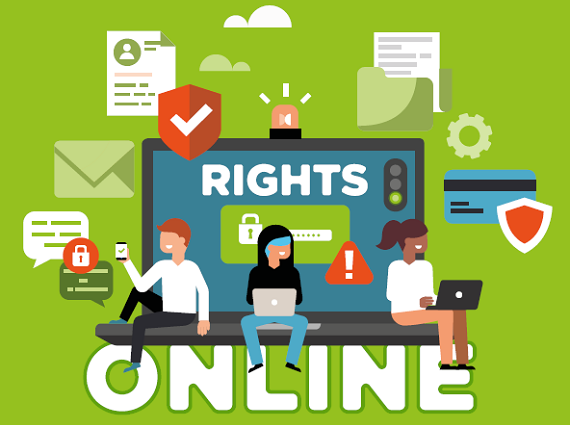
Rights online
Active participation
The private sector can support active participation by:
- developing tools for interactive communication, collaboration and feedback;
- developing new and innovative tools for democratic participation with particular reference to those that favour inclusion and freedom of speech in safe learning environments;
- demonstrating how artificial intelligence can be used for transparent, insightful and effective decision making;
- encouraging safe and positive participation by anticipating, in the design of platforms, risks of communication abuse such as trolling and other disruptions;
- incorporating principles of good practice in active participation within platforms’ community guidelines;
- providing effective and easy-to-find remedies for redress to ensure that everyone has equal rights to participate and that they are widely known to all users;
- demonstrating how young people can make their voices heard in practical ways and contribute their opinions in matters of public debate and public decision making.
Education institutions can support active participation by:
- being a role model for active participation by providing opportunities for learners, teachers and parents to contribute in positive and meaningful ways to the school community through the use of digital technologies;
- encouraging interactive discussions and facilitating online engagement within the wider school community on school issues;
- extending participation in the classroom to include the use of digital platforms so as to extend the layers of participation;
- training staff to recognise risks and how best to respond to situations that may arise in the context of active participation online such as harassment, trolling, hate speech, misuse of their personal data, commercial exploitation or other infringements of their rights, etc.;
- choosing digital platforms and services that promote co-creation of content and active involvement at all levels;
- drawing on the learnings from the global pandemic about how to support safe, secure and positive online communities.
Rights and Responsibilities
The private sector can support rights and responsibilities by:
- ensuring that consideration of human rights, including the rights of the child, is a key component of the development of digital services, especially when they are likely to be used by children and young people;
- taking reasonable, proportionate and effective measures to ensure that the rights protections in community guidelines and terms of service are respected and enforced;
- promoting its achievements and actual track record in respect of human rights considerations and the right to education;
- supporting training for developers, designers and digital content producers on aspects of human rights that are of particular relevance to the use of digital technologies. These include, for example, access and non-discrimination; freedom of expression and information; the right to peaceful assembly, association and participation; the right to play, recreation and rest; the right to practise one’s own culture and the right to effective remedies and redress;
- ensuring that professionals working for and with children and the private sector, including the technology industry, are trained in how the digital environment affects the rights of the child in multiple contexts, how they access and use technologies and the ways in which children exercise their rights in the digital environment.
Education institutions can support rights and responsibilities by:
- incorporating as part of the school’s responsibility the provision of a safe and secure digital environment for learning;
- ensuring that there is always access to a plurality of sources of information so that learners can become aware of and respect diversity of opinion;
- carefully evaluating the need for blocking or filtering devices in learning settings as they may contravene the child’s right to information;
- raising awareness of parents about their primary responsibility to provide for their children’s upbringing and development, as articulated in Article 18.1 of the United Nations Convention on the Rights of the Child;
- displaying in prominent locations sources of information about rights and responsibilities online and where learners can find out more;
- training school staff to support digital citizenship education, especially with regard to the Council of Europe’s Guidelines to respect, protect and fulfil the rights of the child in the digital environment;
- choosing private sector resources and services that are aligned with the principles of digital citizenship education, with specific reference to Recommendation CM/Rec(2019)10 of the Committee of Ministers to member States on developing and promoting digital citizenship education.
Privacy and Security
The private sector can support privacy and security by:
- ensuring that responsibilities under data protection legislation, including GDPR requirements, are fully met, with particular reference to the protection of learners’ data. It is vital to ensure user control of privacy and personal data. Third-party advertising services or tracking technologies need to be carefully monitored, and the security of systems and data (including through good password policy and practice) must be regularly upgraded;
- regularly reviewing their child-oriented policies, standards and codes of conduct to maximise opportunities and address risks in the digital environment;
- demonstrating to education institutions the standards and mechanisms by which their privacy, safety and security features can be quality assured;
- making provision at an early stage in the development of any partnership for how to deal with breaches of privacy and security;
- showing the steps to be taken to ensure data privacy, especially concerning portability of data, the right to be forgotten, the right of access and right to verify and correct;
- being transparent about the availability of policies governing privacy practices and data collection practices as well as third-party advertising services and/or tracking technologies;
- demonstrating compliance with relevant international legislation for privacy, data protection, freedom of information and data transfer;
- ensuring consent practices and “terms of service” are compatible with the age of the learners, and written in user-friendly, accessible language;
- posting a privacy policy and general terms and conditions of service that meet the requirements of information adapted for services used by minors and, to this end, designing transparent and simple interfaces that can be understood by minors.
Education institutions can support privacy and security by:
- ensuring that the staff are sensitised and trained in the key areas of basic online safety, protecting personal identity, safe and secure access for learners, how to protect others, privacy enhancement and how to foster and maintain a healthy and positive online environment for learning;
- providing additional training for staff on the ways in which children exercise their rights in the digital environment;
- selecting robust and secure systems that provide a safe and secure environment, free of leaks and viruses and protect the data of learners and staff;
- having strategies in place to deal with breach notices and data damage control;
- having in place policies on filtering and monitoring that are consistent with the other safeguarding policies of the education institution and with respect for human rights in the digital environment;
- providing physical and technical security of administrative and curriculum networks (including Wi-Fi);
- ensuring reasonable security standards to protect the safety and confidentiality of a user’s personal information and account management.
Consumer Awareness
The private sector can support consumer awareness by:
- demonstrating corporate social responsibility in promoting critical consumer awareness and consumer rights;
- being transparent when involved in educational settings, which may take the shape of an annual report which should be discussed early in the design of the partnership;
- implementing Recommendation CM/Rec(2018)7 of the Committee of Ministers to member States on Guidelines to respect, protect and fulfil the rights of the child in the digital environment. The guidelines require the use of effective systems of age verification to ensure learners are protected from products, services and content in the digital environment that are legally restricted with reference to specific ages, using methods that are consistent with the principles of data minimisation.
Education institutions can support consumer awareness by:
- fostering an understanding of the implications of the commercial reality of online spaces among the competences that individuals will need in order to maintain their autonomy as digital citizens;
- teaching learners about the ethics and the rules of marketing. This is an area with which the private sector and in-service teacher training can help;
- encouraging ethical entrepreneurship in educational settings, fostering projects that also contribute to an environment of trust and promotion of rights and responsibilities;
- highlighting the importance of sustainability in education. Consumer awareness plays a key role in this regard and should be an important feature of any partnership between education institutions and the private sector;
- recognising children’s and young people’s interest in shopping and in being aware of the latest fashion and trends, and helping them to become more consumer aware and to make good decisions in all commercial contexts;
- developing ready-to-use templates that facilitate discussions of acceptable/unacceptable commercial behaviour in education institutions.

Download our infographic on the Guidelines!
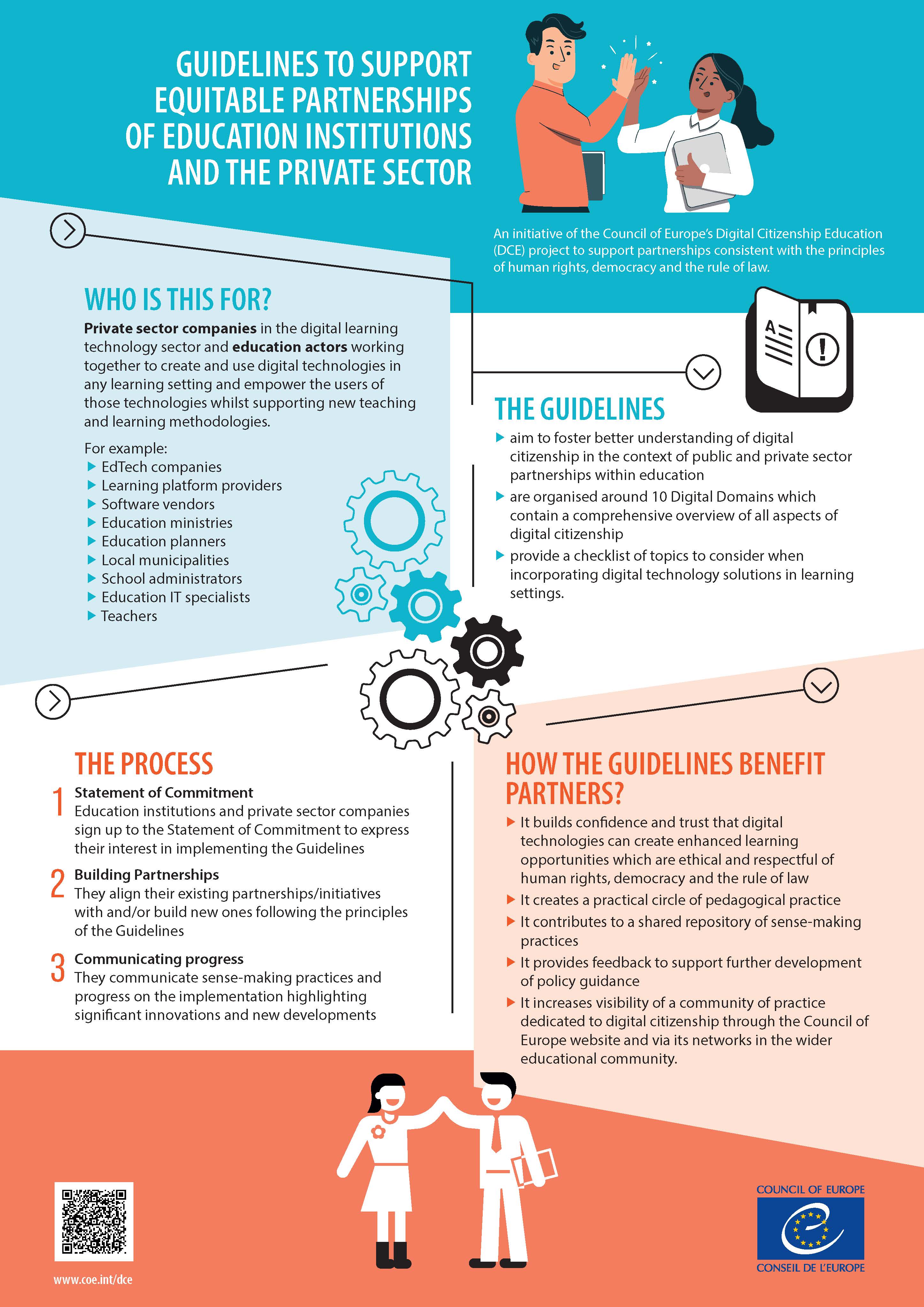
Communicating progress on building equitable partnerships in education
Download here the Explanatory document
and the Statement of Commitment
Sign it, and send it to digital.citizenship@coe.int if you want to become part of our network!



